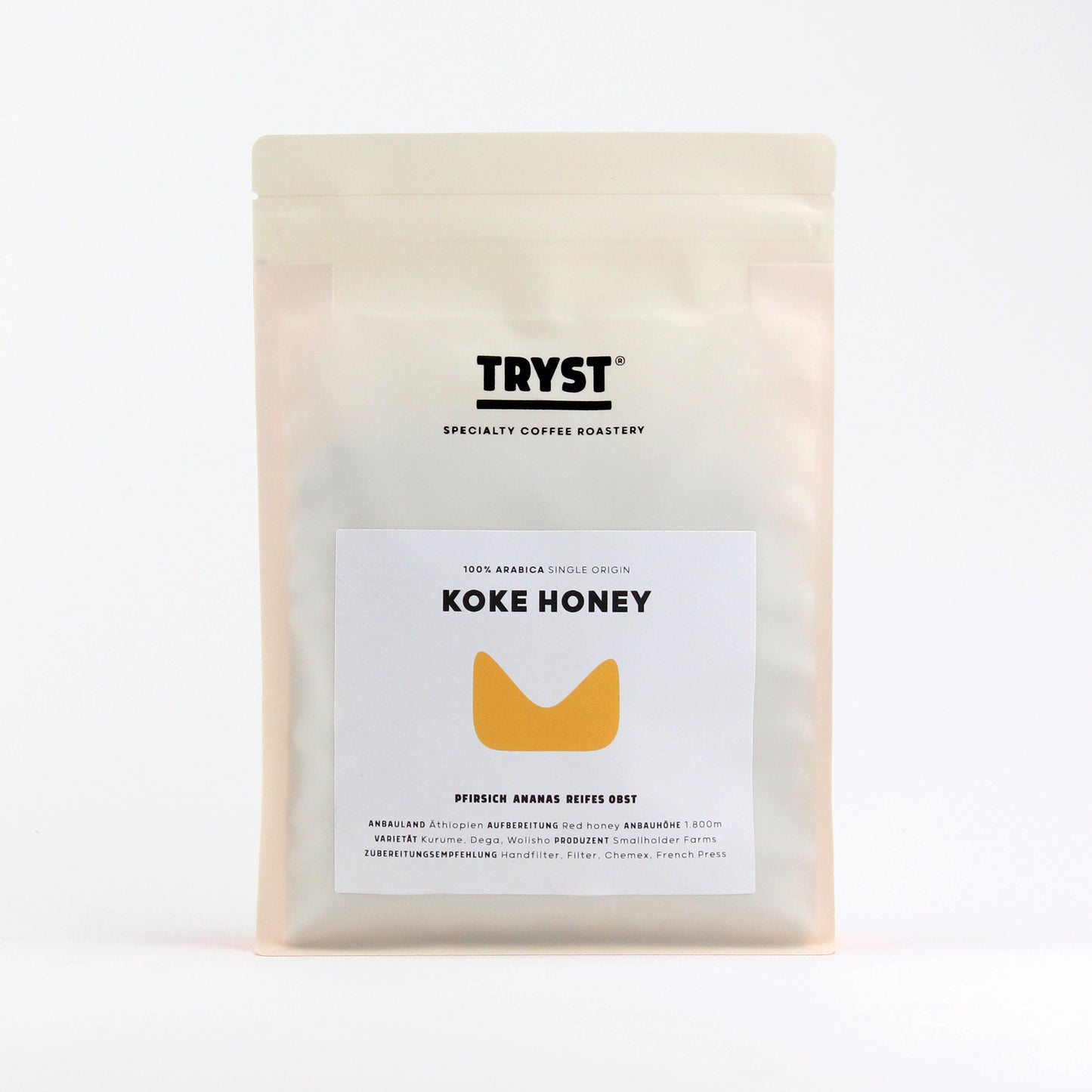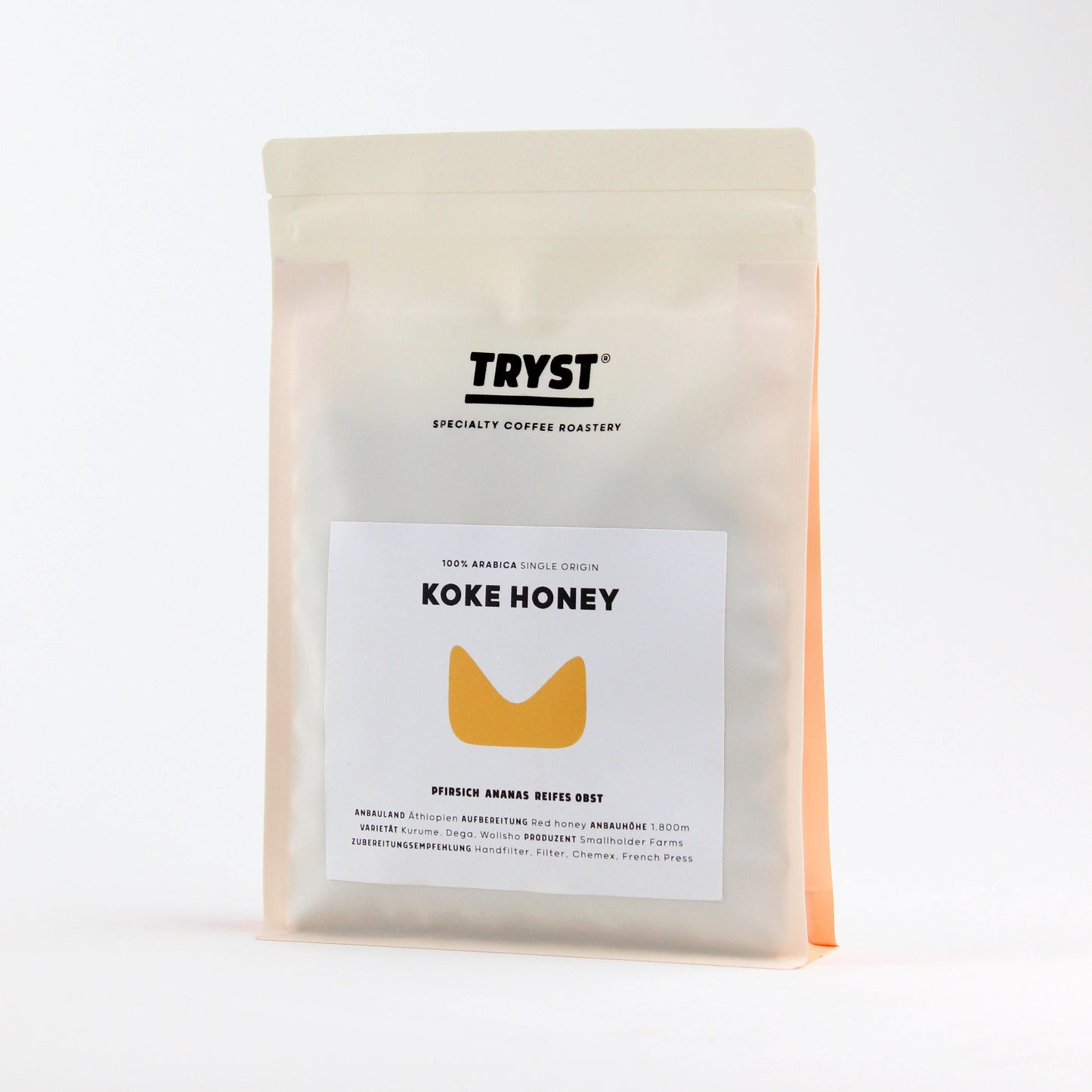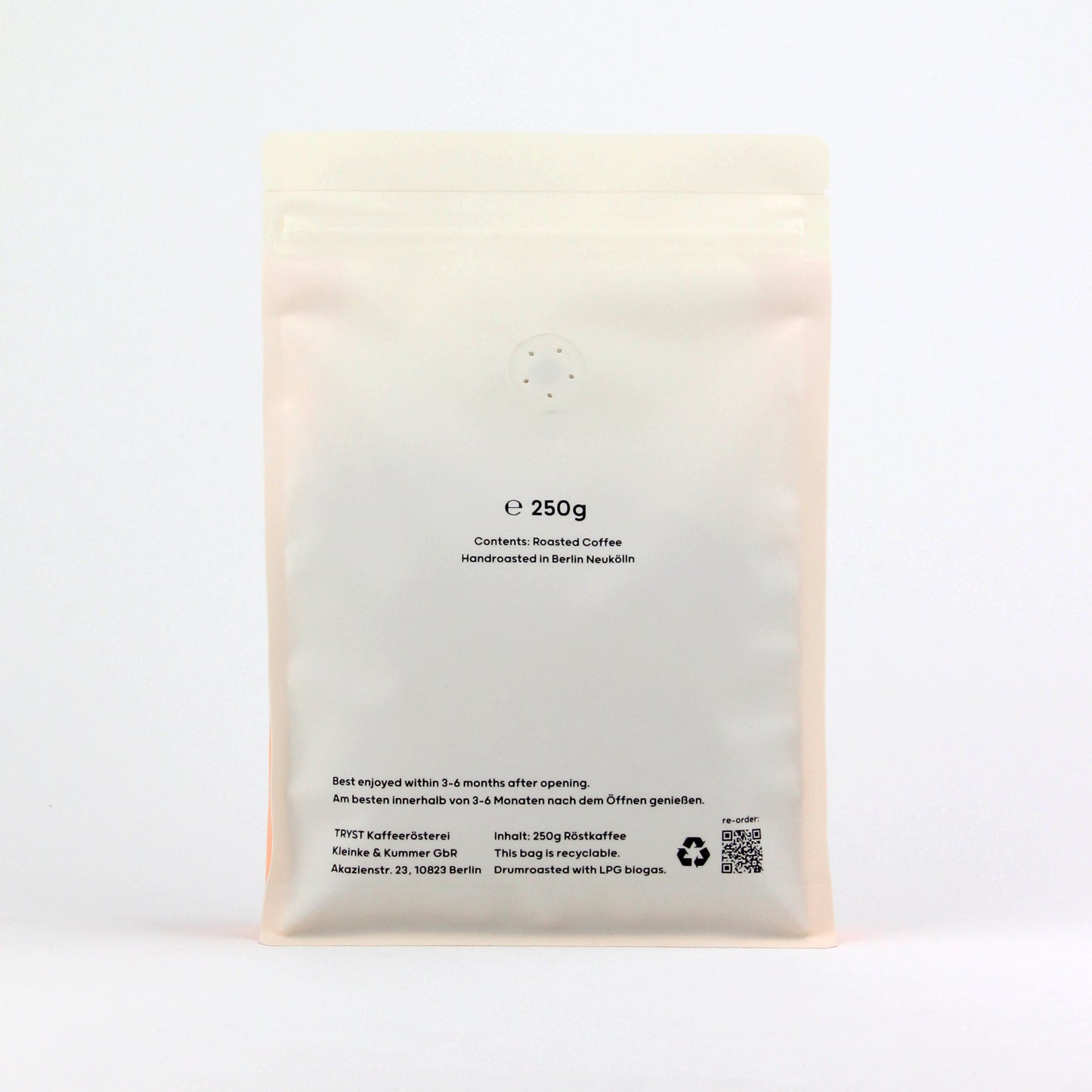Mein Shop
Koke Honey
Koke Honey
Couldn't load pickup availability
Koke Honey is a wonderful discovery and exciting on many levels. The Kurume and Wolishu varieties are something special. In addition, it is processed as red honey, which is quite rare for Ethiopia, at least we have never had any before.
The result in the cup: delicious. There's a lot going on here on the fruity side: pineapple, peach, ripe fruit. And despite the colorful fruit cocktail, the coffee is surprisingly clean, not very funky but very complex.
This is what's inside:
100% Ethiopia Koke Honey
Producer: Smallholder Farms
cultivation altitude : 1600m
Variety : Kurume, Dega Wolishu
Process : red honey
The lot comes from the kebeles (Ethiopian communities) Birbes Kela, Koke, Konga, Wedessa and Tisho. Many small farms bring their harvest to the Koke Washing Station where this coffee is processed.
We source the coffee from our partner Allly Coffee, who has had a close partnership with the washing station since 2015. The station was built in 2011 and the partnership with Ally began in 2015. Over the years, many improvements have been made, staff have been trained and farmers have also been supported with know-how and targeted mentoring programs to improve the quality of their coffee. The close cooperation between farms, washing stations and importers makes it possible to significantly increase the overall quality level, which is not only relevant for buyers and consumers, but also benefits the farmers as they can achieve higher prices when selling the green coffee.
Honey Process
This form of processing is less common in Ethiopia. Nevertheless, it gives the coffee a pretty exciting profile. The harvested coffee cherries are fermented in their own pulp for two days before they are pulped. The pulped coffee is then dried on raised beds to its optimal moisture level.
The coffee is then prepared for export at Tracon Trading's coffee cleaning and storage facility on a 30,000 square meter site in Addis Ababa. The facility is equipped with modern Pinhalense coffee processing machines and a Bühler Z+ color sorter. The machine has a capacity of six tons per hour. The beans go through a final hand sorting on conveyor belts. The facility's six storage silos have a capacity of around 15,000 tons. The warehouses are clean and have sufficient light and ventilation, which is ideal for maintaining the quality of the coffee even during storage.
Share






